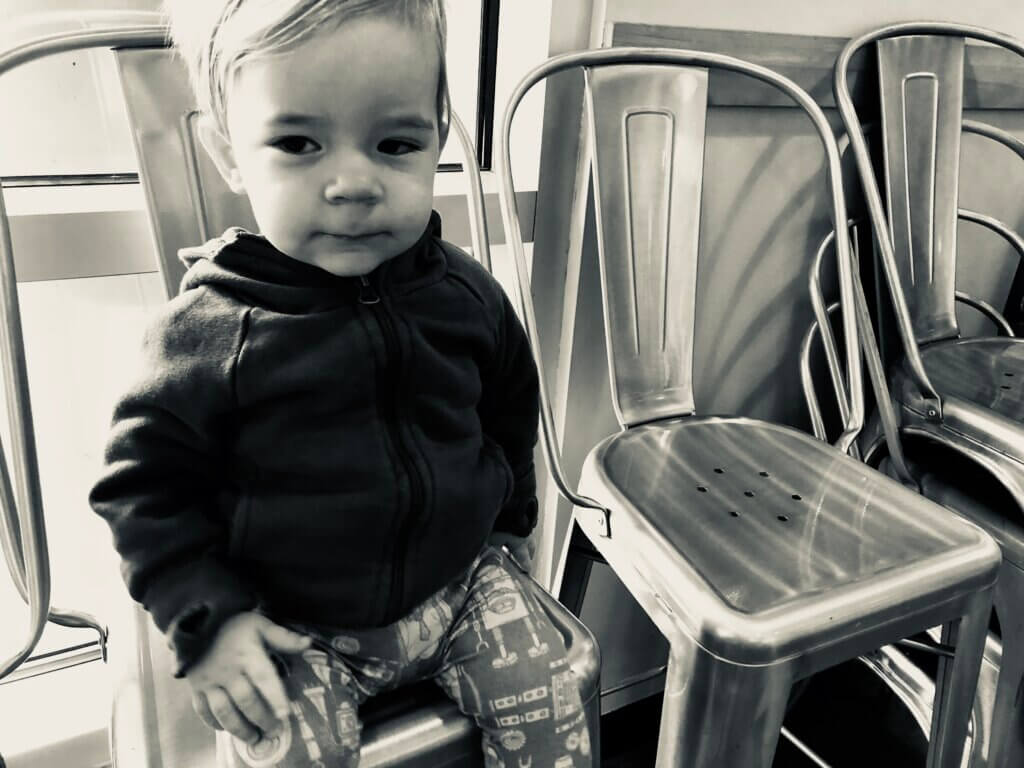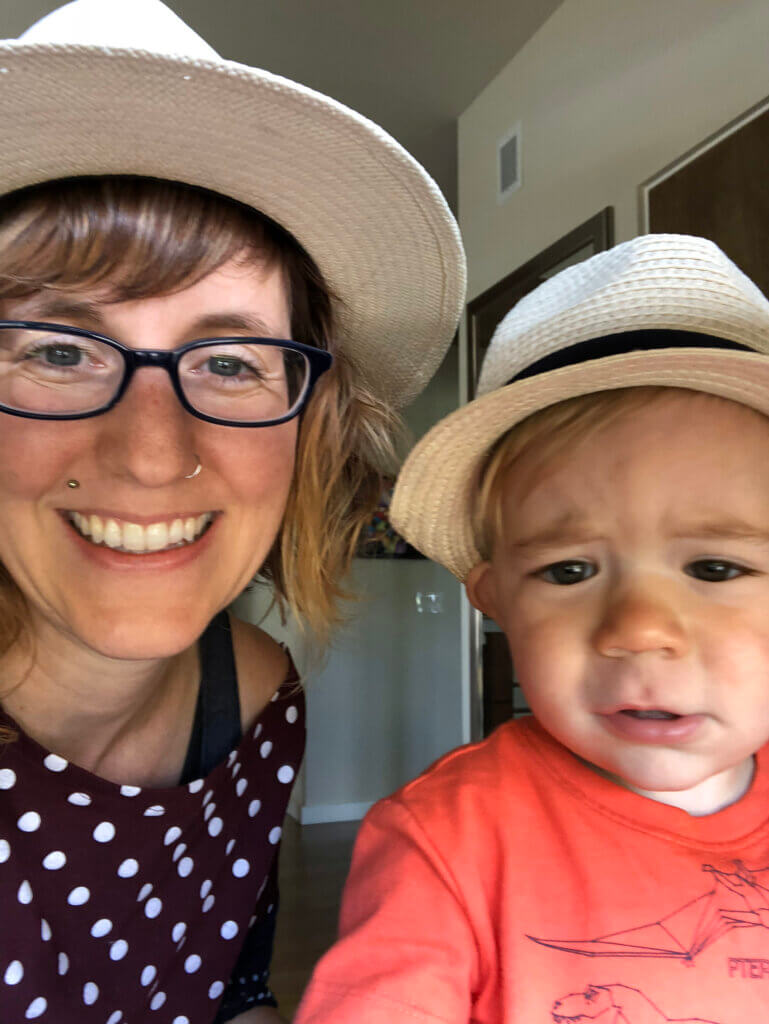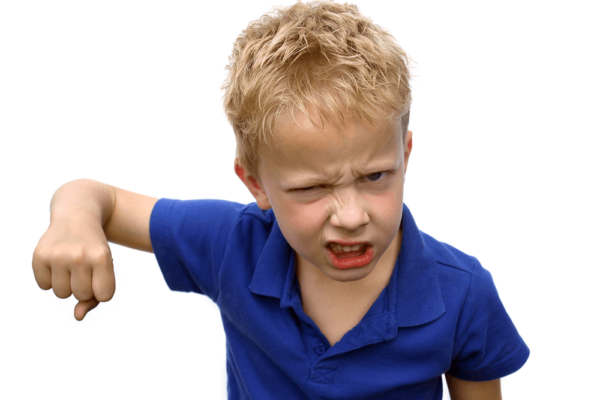My Top 5 Toddler Parenting Tools
The pitter-patter of little feet running through the house, the crash of toys, the banging of cups, and the sound of a toddler’s constant chatter fills my home.
My little baby is now a full-blown toddler. Every stage of development has been such an exciting leap, but it’s at this stage that I’m getting a glimpse into the inner dialogue of my little one’s brain. He is learning to talk and along with language comes a newfound sense of independence and autonomy. This is great when I need to clean up after meals or shoot off a couple of emails, because he can now play by himself for longer periods of time, or even better, help me around the house. It’s a challenge when I have an agenda of what needs to happen now and it doesn’t align with HIS plan. I now understand why virtually every parent of a toddler says their child is “strong-willed”.

There’s a parenting myth about the terrible two’s, but what I’ve found is that it doesn’t have to be so terrible if you have some solid Positive Discipline parenting tools in your back pocket. When you know that their developmental goal is independence, autonomy, and a strong need to contribute, you can find ways to invite cooperation. I’m not saying that every interaction is easy, happy, and without power struggles. We definitely struggle. Just yesterday, when we needed to leave right after a nap for a birthday party, he did not want to leave. He did not want to change his diaper. He did not want to get into the hot car. I used all the tools below and we still struggled, but we made it through and made it to the party – just a little late.
It’s not about avoiding power struggles, but about recognizing them when they happen and letting go of your end of the struggle.
It takes two to have a power struggle. If you are feeling that, “I’m winning this one” feeling, stop. Let go and find a way to invite cooperation instead. These are my daily go-to mutually respectful Positive Discipline tools that help me share power and teach my little one life skills along the way.
Connection through music
We use music in our house in all kinds of ways. Sometimes we use music for impromptu dance parties. Other times, music helps us get through our routines. We have a special song for sleep, that is a great trigger for my little one to know it’s time to try and fall asleep. This helps when we are traveling too because the song is always on my phone. (Which has become a permanent, extra limb.) We also use music to get our pajamas on. Yep, we’ve found songs that go with every pair of pajamas. Sometimes I just ask Alexa to play the “dinosaur song” and she finds something that works. Playing his favorite song helps us get through diaper changes, or at least it helps me because really, at this stage diaper changes are so tortuous for toddlers! I, of course, make up songs and sing too, but Alexa really is my go-to music player.
Let them help
I’m often making dinner at home alone with the little one. Asking him for help gets us through cooking dinner when he really needs some connection time with me. He can tear kale, pour things into the pot or bowl, and help me stir. When I need to do chores around the house, I find ways to have him help. He loves moving clothes in and out of the washer and dryer. If I’m putting laundry away, I ask him to help me organize my bathroom drawer. We have a drawer with bottles and non-toxic things he can play with. He loves pulling everything out and putting it back in. When we are cleaning up from meals, he has his own spray bottle and washrag to help.
Give limited choices
Offering two choices that both you and your toddler can live with is one of my most used, every 5 minute, kind of tools. “Do you want to wear the pink bib or the green bib?” “Which toothbrush will you use, and which will mommy use? Pooh or piglet?” “What t-shirt do you want to wear, the striped one or the whale one?” Limited choices also help with transitions. “What toy do you want to bring with you to change your diaper, the firetruck, or the ball?” Adding “you decide” hands over the power and I am careful to only offer a choice when I have the time for him to actually pick one.
Validate feelings
Big feelings are going to happen regardless of Positive Discipline or any attempt to control each variable. THIS IS NORMAL. Humans are emotional! I want to send the message to my little guy that emotions are okay in our home. Validating his feelings is such a powerful tool to let him know he is heard and that I understand him. “You are sad that you have to stop playing with your cars and go to bed.” “You are mad that we have to leave the park now.” Naming feelings both helps to calm them down (it seems counter-intuitive, but wait for it, there’s science) and teaches them how to name their own emotions (language development!). Yep, brain science says that naming the emotions or validating their feelings actually tells the amygdala in the brain to calm down and helps them get back to their rational brain faster.
Humor
Toddlers love humor! Adding a little fun and silliness can go a long way. Even if you don’t consider yourself a funny person you can try a couple of these things.

Tickle monster is especially helpful for me at night time when we are trying to get through our routine and we run into a power struggle. For example, when he doesn’t want to put on his pajamas. Instead of chasing him around the house until I manage to force his pj’s on, we tickle it out until we calm down and then try again. “Now…where do your pants go? Hmmm…do they go on your arm? On your head?” Making up silly songs while we do things like wash hands and brush teeth is great too. When I’m feeling uncreative I just take a simple tune like row, row your boat and add in the steps to brushing teeth or other parts of the routine.
The goal with all of these tools is to be KIND AND FIRM. The kindness is the connection part, the part where you validate their feelings, try to make things fun, and offer options that they will be excited about. The firm part is where you stick to this is what is happening now. We ARE going to the grocery store. We ARE cooking dinner right now.
Now a note for the naysayers. Yes, sometimes you don’t have time to use these tools and you also have a screaming baby. Or you are exhausted and you have an audience and it isn’t a party you are late for, but an important doctor appointment that you have been waiting 8 months to finally get to. That’s okay! Validate feelings and move on. Just remember that when you DO have time, trying some of these tools can reap many benefits, including cooperation for the rest of the day, connected relationships, and ease.
Fortunately, you will have lots of opportunities to practice, and the more deposits you make, the bigger the return.
Psst…did you know it’s not actually the terrible two’s, but the terrible threes and the f-ing fours?! Yep, our friends Dr. Daniel Siegel and Dr. Tina Payne Bryson have taught us this. A child’s emotional development (the right brain) actually starts and peaks at ages three to four. Stay tuned for more emotional drama from the Beebe house. It’s right around the corner!





Comments